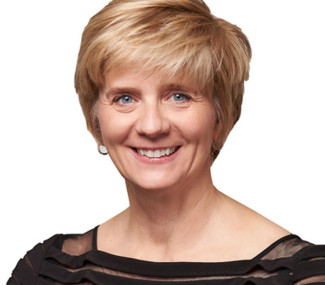RAPPORT // Looking at Davos and BlackRock, What Active Global Citizenship Means for Humanity


Welcome to Rapport a special blog series within Vanishing Point. As the name implies, this blog is a conversation. Once every month, we will explore foundational shifts and open discussion about current issues and trends. I will introduce perspectives grown from years of work with the founder of our eponymous firm, executive experience, global adventures, and personal relationships with some of the greatest thinkers and leaders of our era. My hope is that you will find these posts interesting, empathetic, and worth discussing.
Last week, global leaders came together at the World Economic Forum (WEF) in Davos to address the hardest and most complex problems facing humanity. As in previous years, they reached across the boundaries between industries, cultures, economics, and capabilities to address the growing complexity of interdependent issues. In doing so, they modeled a commitment to an emerging movement of shared global citizenship.
This timing is not insignificant as a couple of weeks ago, BlackRock CEO Larry Fink made the call for world leaders to work together to help the global society. In a January 12, 2018, letter to BlackRock portfolio companies, Mr. Fink challenges leaders to expand their focus beyond purely financial gain. He observes that “Society is demanding that companies, both public and private, serve a social purpose.” He goes on to make a call for a new model of corporate governance.
“Your company’s strategy must articulate a path to achieve financial performance. To sustain that performance, however, you must also understand the societal impact of your business as well as the ways that broad, structural trends – from slow wage growth to rising automation to climate change – affect your potential for growth.” – Larry Fink, CEO, BlackRock
With this letter, he threw down the gauntlet. Nonetheless, this bold and progressive command falls short in application. Compelling leaders to consider the social implications of their organization’s decisions and activities is important, but it doesn’t force them to think beyond what they currently are doing as part of their corporate responsibility (CSR) efforts. The call for a new model of stakeholder engagement is a positive direction; however, I don’t believe this can be enough.
Business leaders must learn how to proactively and persistently work together across industries to solve the hard problems humanity faces. The complex issues discussed in Davos, such as human migration, geopolitical imbalances or food shortages are not nicely siloed so that a group of culturally similar businesses or an industry as a whole can begin to attack or solve the problems. The current hard problems are intertwined more tightly than ever before – for example, what are the implications of failing infrastructure on human migration, which stresses regional resources, in turn causes food shortages which creates geopolitical crises, which affects what infrastructure is built and so on and so forth? Solutions will emerge as we understand the interdependences and create solutions that address the complexity.
What we can expect – and what activities such as WEF prove possible – is that leaders across public and private sectors from countries around the world will acknowledge their shared citizenship by working with collective responsibility. This progress starts with events like WEF and leaders like Fink who are courageous enough to tell us to look past our individual selves, companies, and industries and see CSR as more than writing a check or even serving on a board. For global level problems, money and traditional community leadership roles are not adequate.
The good news is that leaders already have proven a capacity for collaborating towards solving major challenges. During man made threats such as post-911 and natural disasters like Hurricanes Harvey and Maria leaders rallied from far and wide to pool resources, intellect, technology, vision, networks, and perspectives to implement exponential change. While it was reactive, it also was swift and productive.
This is a call for proactivity and collaboration. Imagine the changes we can create by taking the time to understand and address the interconnections while adjusting for the first, second and third-level impacts of global challenges.
People like Fink and the leaders participating at the WEF already are modeling this change behavior. They are putting the structures in place for collective thinking about current and future needs. They are breaking down the stovepipes and enabling others to participate in creating solutions. I can attest to the fact that being a CEO doesn’t necessarily mean we know every solution to every problem. That’s where collaboration and shared citizenship are so valuably necessary. What one leader lacks, others can bring to the table. Working together, we will understand, learn, share, create and solve issues that affect us all.
We can’t afford to not figure this out. As world challenges become more complex and interconnected, we’re at risk of being blindsided and reactive. We have a rudimentary model for collaborative progress. Now we must focus on cultivating it, while endeavoring to produce true lasting impact.
What hard problem are you working across multiple industries to solve?
Share your ideas below and let’s start building the rapport.
- Categories
- Climate Scenario Analysis
- Leadership


 About the Authors
About the Authors